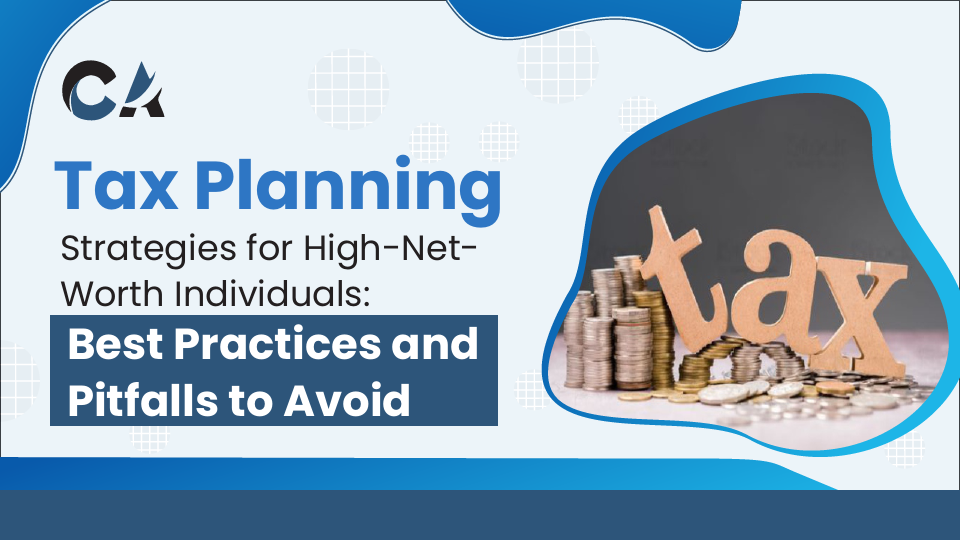Tax Planning Strategies for High-Net-Worth Individuals: Best Practices and Pitfalls to Avoid
High-net-worth individuals (HNWIs) often face complex tax scenarios due to their substantial assets and investments. Effective tax planning is crucial not only for minimizing tax liabilities but also for optimizing financial strategies and preserving wealth. Let’s explore some best practices and pitfalls to avoid in tax planning for HNWIs.
Best Practices in Tax Planning for HNWIs
- Early Planning: Start tax planning early in the financial year to leverage opportunities and make informed decisions.
- Asset Allocation: Diversify investments across different asset classes to manage tax implications effectively.
- Use of Tax-Efficient Instruments: Invest in tax-efficient instruments such as Equity Linked Savings Schemes (ELSS) or tax-free bonds.
- Charitable Contributions: Utilize deductions under Section 80G for donations to approved charitable organizations.
- Retirement Planning: Maximize contributions to retirement funds like the National Pension System (NPS) for tax benefits.
Pitfalls to Avoid
- Avoiding Tax Avoidance Schemes: Stay clear of illegal tax avoidance schemes that promise unrealistic tax savings.
- Ignoring Tax Compliance: Ensure timely filing of returns and compliance with tax laws to avoid penalties and legal issues.
- Overlooking Wealth Transfer Taxes: Plan for estate and inheritance taxes to minimize the impact on heirs.
- Not Reviewing Investments Regularly: Regularly review investments to align with changing tax laws and personal financial goals.
Are you a high-net-worth individual seeking expert tax planning strategies to optimize your financial position?
Contact us at +91 911 891 1172 to schedule a consultation and discover personalized solutions tailored to your needs.


